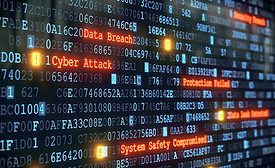Cybersecurity News
Authentication vs. authorization | Why we need authorization standards and what it means for enterprise cybersecurity
I witnessed the transition from bespoke authentication to standards-based authentication. It’s time to do the same for authorization.
August 6, 2020
Sign-up to receive top management & result-driven techniques in the industry.
Join over 20,000+ industry leaders who receive our premium content.
SIGN UP TODAY!Copyright ©2025. All Rights Reserved BNP Media.
Design, CMS, Hosting & Web Development :: ePublishing
















